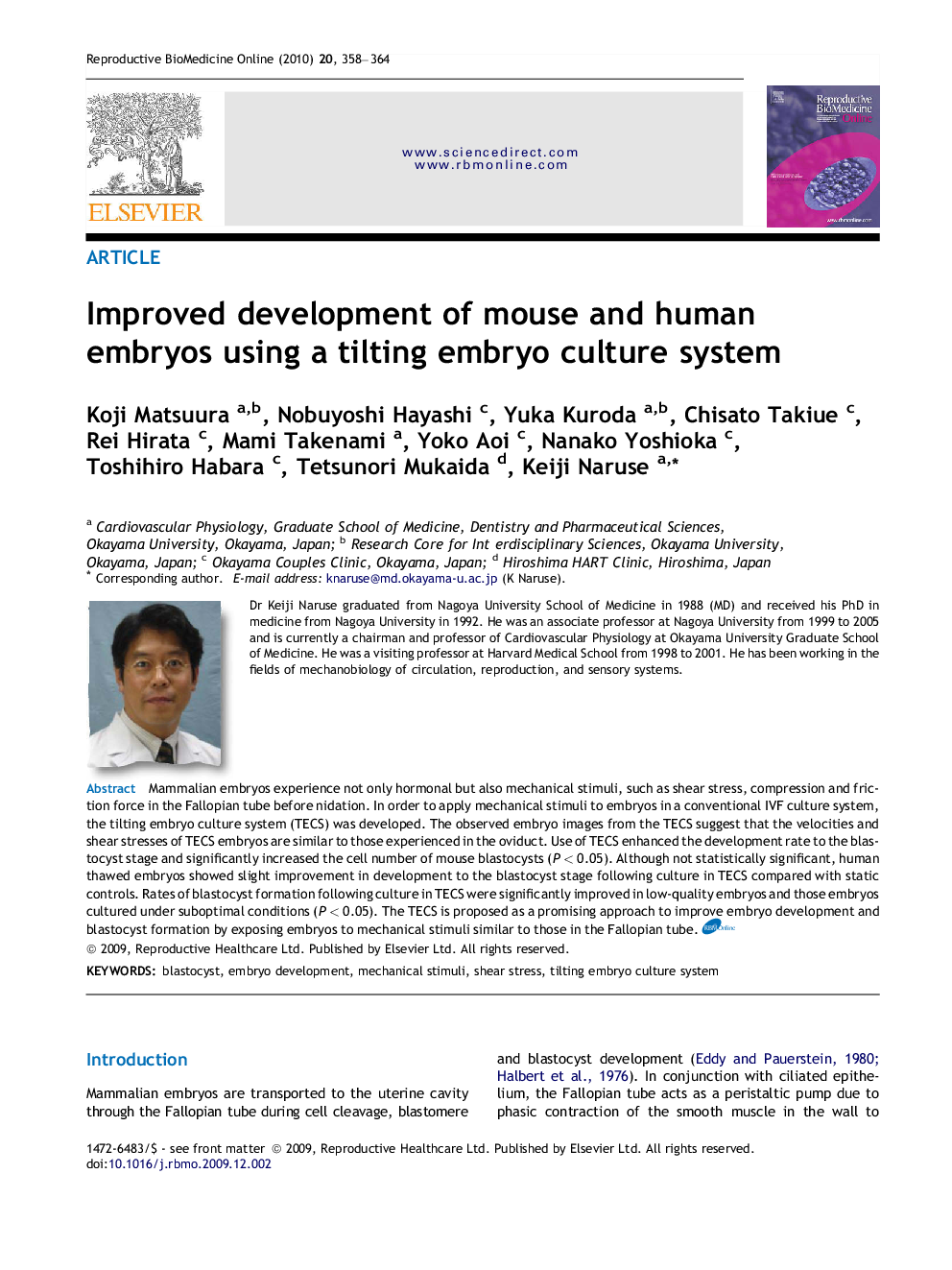| Article ID | Journal | Published Year | Pages | File Type |
|---|---|---|---|---|
| 3971538 | Reproductive BioMedicine Online | 2010 | 7 Pages |
Mammalian embryos experience not only hormonal but also mechanical stimuli, such as shear stress, compression and friction force in the Fallopian tube before nidation. In order to apply mechanical stimuli to embryos in a conventional IVF culture system, the tilting embryo culture system (TECS) was developed. The observed embryo images from the TECS suggest that the velocities and shear stresses of TECS embryos are similar to those experienced in the oviduct. Use of TECS enhanced the development rate to the blastocyst stage and significantly increased the cell number of mouse blastocysts (P < 0.05). Although not statistically significant, human thawed embryos showed slight improvement in development to the blastocyst stage following culture in TECS compared with static controls. Rates of blastocyst formation following culture in TECS were significantly improved in low-quality embryos and those embryos cultured under suboptimal conditions (P < 0.05). The TECS is proposed as a promising approach to improve embryo development and blastocyst formation by exposing embryos to mechanical stimuli similar to those in the Fallopian tube.
